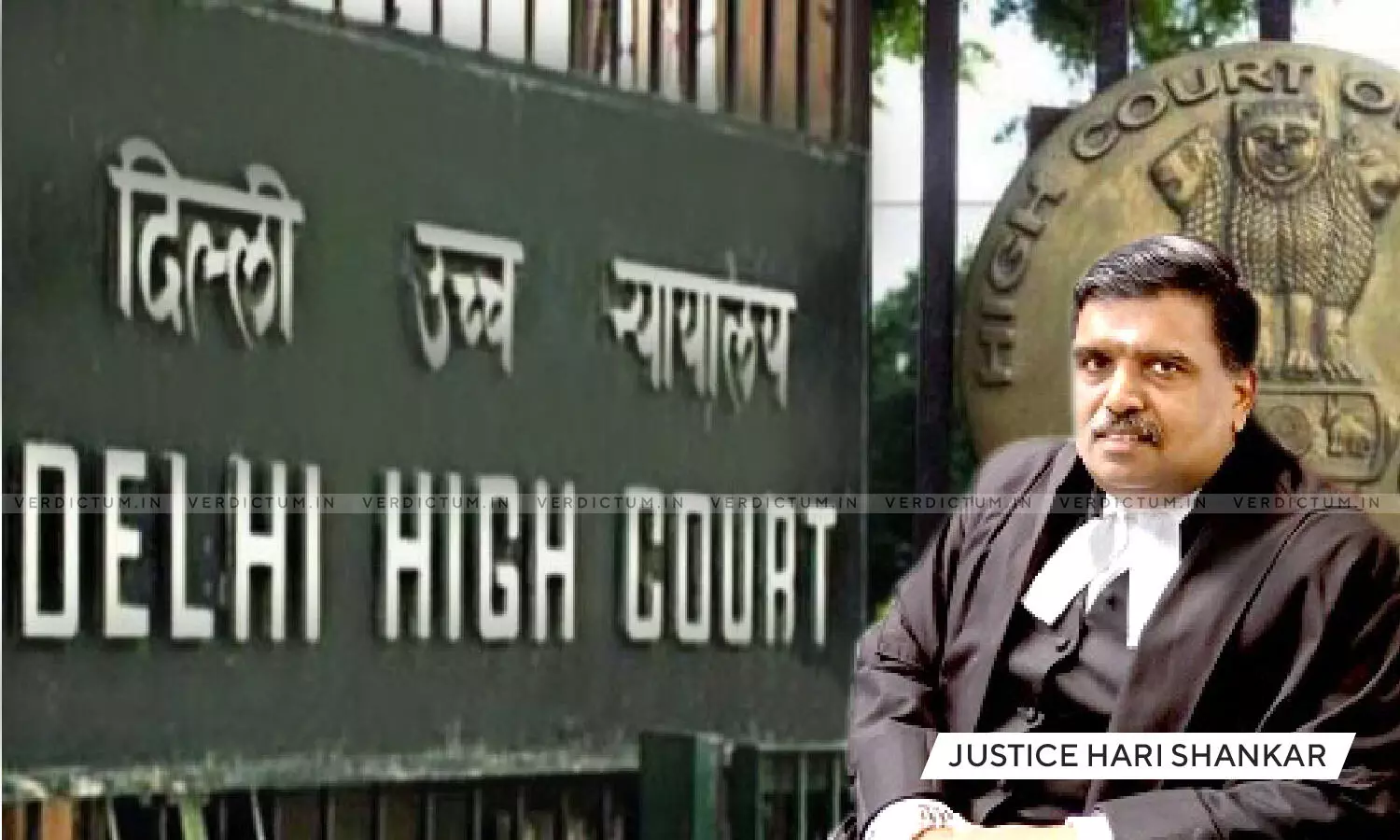
12 Months Period U/S. 29A (1) A&C Act Will Reckon From The Date When Right To File Rejoinder Stands Exhausted Or From The Date When It Is Actually Filed: Delhi HC
 |
|The Delhi High Court has observed that where the rejoinder is permitted to be filed by the Court or by the Arbitral Tribunal, the period of twelve months under Section 29A(1) of the Arbitration and Conciliation Act, 1996, would reckon from the time when the right to file rejoinder stands exhausted.
The Court added that if the rejoinder is on record, the period of twelve months would be reckoned from the date when the rejoinder is actually filed.
The Bench of Justice C Hari Shankar held, “In as much as the question arises in the context of determining the terminus ad quem from which the period of twelve months under Section 29A(1) is required to be reckoned, it has to be determined with respect to the basic issue as to whether the rejoinder, if permitted to be filed, would constitute part of the pleadings. It cannot be said that, if the rejoinder is permitted to be filed, it would constitute part of the pleadings only if it is actually filed. Where the rejoinder is permitted to be filed by the Court or by the Arbitral Tribunal, the period of twelve months, for the purposes of Section 29A(1) would clearly reckon from the time when the right to file rejoinder stands exhausted. Needless to state, if the rejoinder is on record, the period of twelve months would be reckoned from the date when the rejoinder is actually filed.”
Advocate Bhargavi Kannan appeared for the Petitioner whereas Advocate Anubha Dhulia appeared for the Respondent.
The brief facts of the case were that the Petitioner had previously approached the Court under Section 11(6) of the Act after both parties failed to arrive at a consensus regarding the appointment of an arbitrator. The Court had referred the matter to the Delhi International Arbitration and Conciliation Centre (DIAC) to appoint an arbitrator in the matter and after a year, an arbitrator was appointed in 2019.
In the interregnum, the statement of claim was filed by the petitioner on July 12, 2018, and the statement of defence, as well as the counter claim, was filed by the respondent on December 4, 2018. In May 2019, the first hearing was held. On July 22, 2019, the petitioner was admitted to corporate insolvency proceedings by the National Company Law Tribunal, Mumbai. Subsequently, the proceedings before the Arbitrator remained adjourned sine die till June 10, 2024.
On 10 June 2024, the Arbitrator took up the matter once again and noted the rival contentions of the petitioner and the respondent; the petitioner contending that, as the rejoinder in the case had yet to be filed, the time for passing the award by the Arbitrator as envisaged by Section 29A(1) read with Section 23(4) of the 1996 Act had yet to expire, and the respondent contending that, as nearly five years have passed since the grant of time to the petitioner to file the rejoinder, the proceedings had to be treated as having been terminated and could not be continued unless they were revived in appropriate proceedings under Section 29A of the 1996 Act. The Arbitrator, therefore, granted time to the petitioner to institute appropriate proceedings under Section 29A. Thus, the present petition was filed.
The issue that arose for consideration was whether a rejoinder can be treated as part of “pleadings” for the purpose of Section 29A(1). The Court relied on the judgments in Anant Construction (P) Ltd v. Ram Niwas (1994 DHC), in which the Court addressed the issue of whether a rejoinder/replication could be included within the ambit of the expression “pleadings”, especially in the light of Order VI Rule 110 of the CPC which specifically states that the expression “pleadings” means the plaint or the written submissions.
The same view stands reflected in the judgment of the Division Bench of the High Court of Andhra Pradesh in Nicolas Piramal India Ltd vs. Cultor Food Science Inc. (2003) and Division Bench of the Karnataka High Court in Buoyant Technology Constellations Pvt Ltd v Manyata Infrastructure Developer Pvt Ltd. (2024).
“Ordinarily, once arbitral proceedings commence, unless there are exceptional circumstances, the Court should take steps to ensure that the proceedings continue and reach their logical conclusion. Guillotining the arbitral proceedings midway, and leaving the disputes as it were suspended undecided in mid-air, is a course of action which Courts should not ordinarily follow. The raison d’ etre of the arbitral process is speedy resolution of disputes. The Court has also to adopt an activist and pro-arbitration approach, and to promote resolution of disputes by arbitration rather than foster attempts which would result in the dispute remaining unresolved.”, the Court said.
The Court opined that the mandate of the Arbitrator may not even have terminated, even if it were to be treated as having terminated, the petitioner was entitled to an extension of the mandate of the Arbitrator.
Accordingly, the Arbitrator was permitted to continue with the proceedings from the present stage and disposed of the petition.
Cause Title: Emco Limited v. Delhi Transco Limited (Neutral Citation: 2024:DHC:6878)
Appearances:
Petitioner: Advocate Bhargavi Kannan
Respondent: Advocate Anubha Dhulia